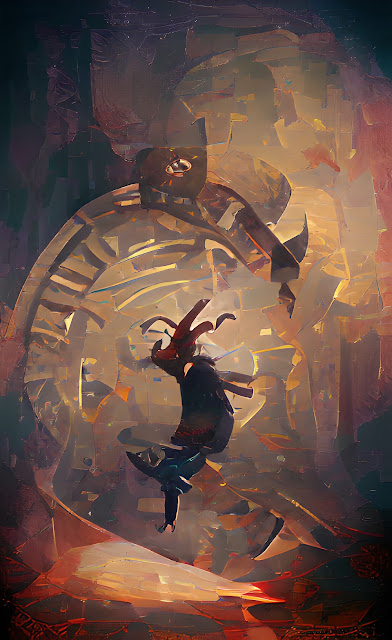Late last year I was asked to do a short run of sessions to wrap up a campaign that had lain dormant for 14 months.
It was very gratifying as a vote of confidence this is from the players. To go back to something that we hadn't touched in over a year and say, “I still want to know how that ends” is really amazing. I was honored – but also anxious that I wouldn't be able to return to the game in a way that would pay off the players’ amazing contributions over dozens of previous sessions of play.
It was challenging to think about how to revive a game that had been dormant for so long. I had never before tried to resuscitate a game that had lain cold for that long. It was different from kicking off a new game, or providing a fresh take on a recently active one.
The players understandably had a patchy recollection of what had happened in the run of sessions up to the hiatus, and only a vague sense of the campaign-wide events in the game. The new sessions had to not only be exciting and interesting on their own merits, but also resonate with dimly remembered details from the past.
What I found to be particularly useful was to propose that a long time had passed in-game, as well as out-of-game. The events of the first new session took place six in-game months after the last session the group played together. And that session began with the characters meeting again for the first time since shortly after the last pre-hiatus session.
This is by no means an original idea. Television shows do this all the time between seasons, for the same reason. If the characters are coming back together after time spent apart, their interactions organically remind the audience what was happening at the end of the last season. It also allows the characters to resolve some things offscreen; typically smaller goals, or downtime activities. The resulting session successfully brought the characters back into the present and oriented them toward their goal.





No comments:
Post a Comment